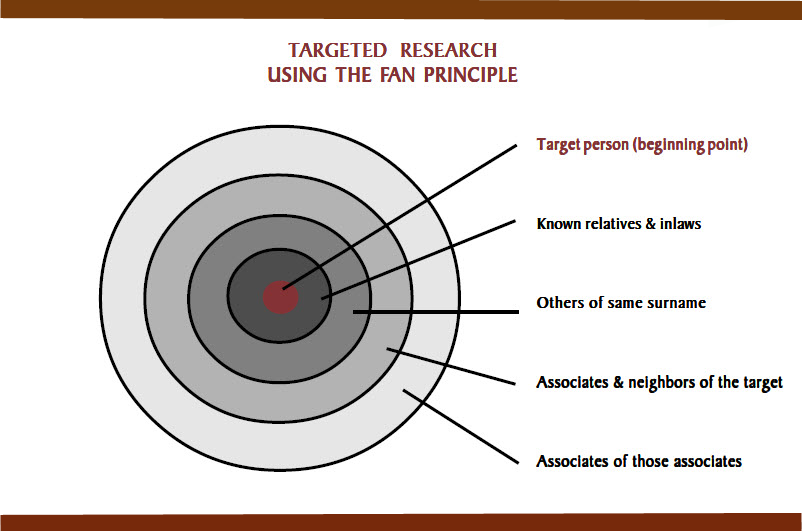10 February 2014
Biographical research is always a gamble. Our person of interest may not have been literate. Or, he belonged to one of the many classes of people who led quiet, impoverished, or otherwise low-profile lives. The records we expect to find for the time and place will likely have suffered some destruction. On the frontiers of settlement or in war-torn areas, the loss may seem a total wipeout. The answer we seek to specific research questions may not appear in any surviving record created by our person of interest.
Still, there's hope. if we’ll make the commitment—and if we'll look at biographical research as a bulls-eye.

Our person is the target. If we do not find all the information we seek (for that matter: do we ever?) when we search surviving records, there are many other expanding rings of opportunity. Each step away from that center target will greatly increase the range of records we'll need to cover, but it will also exponentially increase the opportunities for resolving our critical issues.
Family members and suspected kin, friends and neighbors, business associates and even enemies—all are valuable to us when we set out to reconstruct a person's life. Making this commitment to use all their resources is how we win against the odds.
Many more strategies appear in EE's QuickSheet series, especially The Historical Biographer’s Guide to Cluster Research (The Fan Principle).